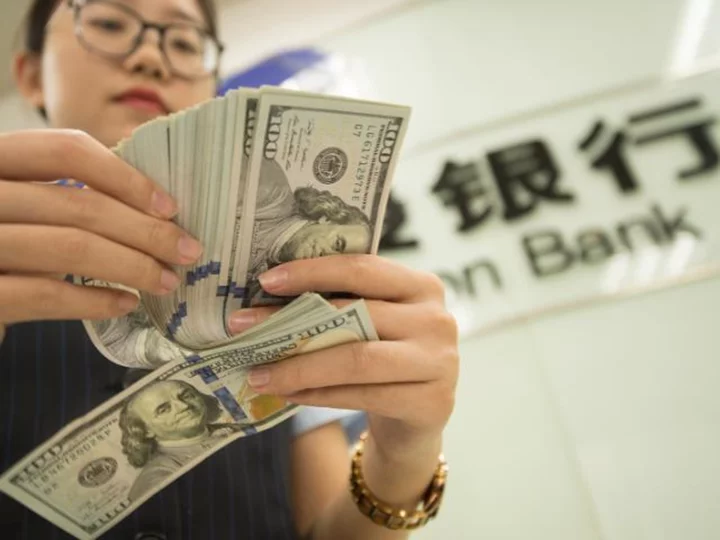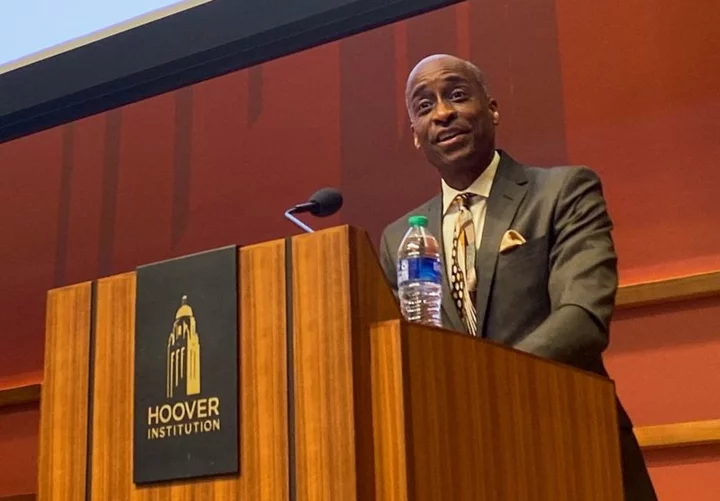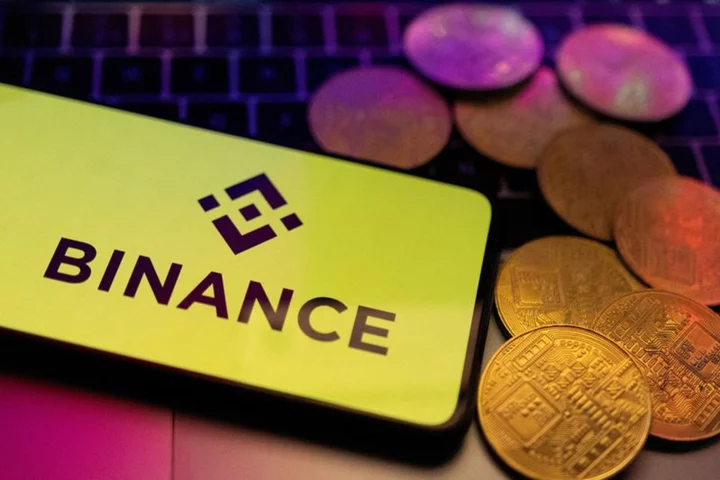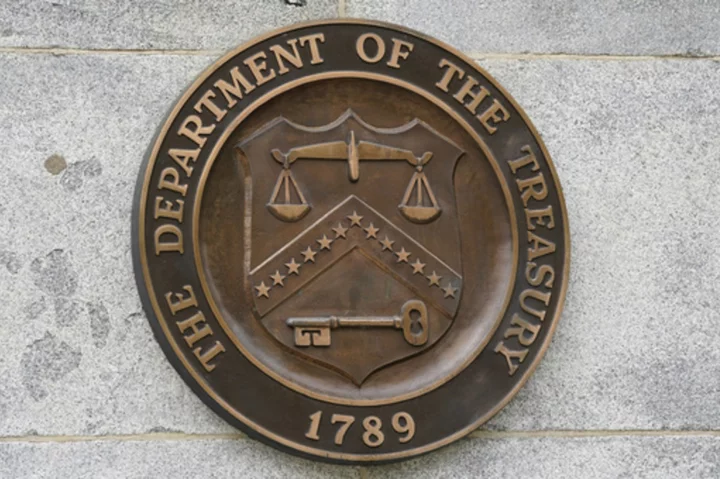Investors have been dumping Chinese stocks at an unprecedented pace, exiting the world's second largest economy despite efforts by Beijing to juice growth by borrowing more to fund extra spending.
Foreign fund outflows from China's so-called A-share market have entered "an unprecedented stage," Morgan Stanley strategists wrote in a recent note. A-shares are yuan-denominated shares of mainland China firms that trade on the Shanghai Stock Exchange and the Shenzhen Stock Exchange.
The cumulative outflow via Stock Connect, a trading link set up in 2014 giving international investors access to shares in mainland China via Hong Kong, hit $22.1 billion between August 7 and October 19, the largest outflow in the platform's history.
On Monday, the CSI 300 Index, which tracks the top 300 stocks on the Shanghai and Shenzhen stock exchanges, slumped to its lowest level since February 2019.
It staged a mild rebound on Tuesday and Wednesday, following news that China's legislature had approved one trillion yuan ($137 billion) in sovereign bonds and the sovereign wealth fund had bought funds to boost sagging shares. But the index is still down nearly 10% this year, one of the worst performers in the world.
"It's time for a fundamental rethink on China," said Alex Capri, a research fellow at the Hinrich Foundation and a lecturer at the National University of Singapore Business School.
"China's worsening economic conditions feed a larger, much more consequential phenomenon, which is a total collapse in trust in the Chinese Communist Party," he said.
The primary factors
The world's shrinking appetite for China shares has two primary causes — the country's economic slowdown and a lack of convincing response from the authorities — according to Brock Silvers, chief investment officer at private equity firm Kaiyuan Capital.
"Real estate and debt crises are deep structural problems for which there are no easy technocratic fixes, yet authorities seem unready to take necessary steps," he said.
While officials has announced a spate of support measures over the last several months to boost the economy, these fixes have failed to assure investors.
They have also been spooked by Beijing's "increasingly, opaque, arbitrary and confrontational" behavior towards foreign businesses, Capri said.
The imposition of anti-espionage laws, police raids on international companies and the detention of foreign corporate staff, are "a throwback to the Maoist era," he added. "Investors now question whether China is becoming more trouble than its worth."
Recently, an investigation into Foxconn, a Taiwanese company best known for making Apple's iPhones, further unsettled investors.
The case was revealed just weeks after the founder of the company, one of China's biggest private employers, announced he was running to be the island's next president. On Wednesday, a spokeswoman for China's Taiwan Affairs Office told reporters that the probe was "normal law enforcement behavior act."
Whatever the motivation, "it [the probe] comes as just another example of the harassment and targeting of executives and employees in foreign, and some local, firms," said George Magnus, an associate at the China Centre of Oxford University.
"This is just fueling the erosion of confidence."
Rising tensions between China and US are also a key factor behind the exodus, experts said.
Global asset managers and venture capital firms have come under increasing pressure from the United States over their investments in China.
In August, President Joe Biden signed an executive order limiting US investments in advanced technology industries in China.
That month, $42 billion worth of capital exited China's current and capital accounts, according to a Goldman Sachs report on Monday. The pattern accelerated in September, with around $75 billion leaving the country, the largest net outflow since 2016, when the People's Bank of China (PBOC) suddenly devalued the yuan and caused the stock market to plummet.
Stimulus not working
Beijing has been trying to shore up the slumping stock market and boost economy growth.
On Tuesday, the National People's Congress approved the issuance of the new bonds in the fourth quarter to fund rebuilding efforts after natural disasters and other infrastructure projects.
The previous day, Central Huijin Investment, an arm of China's sovereign wealth fund, bought an undisclosed amount of exchange-traded funds, and pledged to increase its holdings in the future. The move comes after it bought millions of dollars worth of Chinese bank shares earlier this month.
Last week, the PBOC injected a record amount of cash into the banking system to keep liquidity ample.
"Temporary measures, such as intervention in stocks or policy stimulus, don't change sentiment. If anything, they just convince people now is the best time to exit, before the intervention loses its impact," said Derek Scissors, a senior fellow at the American Enterprise Institute.
"The supportive steps that would matter involve creating more space for private sector expansion by gradually reducing the economic role of the state. This seems highly unlikely under Xi."
Even Chinese investors seem to be plagued by a growing lack of faith in the future of the country's economy.
Dingtai Capital, a Shenzhen-based private equity investment fund, shocked the markets last week by asking its investors to redeem their shares from the fund, citing "unprecedented uncertainty" about the economy.
"The coming big crisis is different from the regional financial crises of 1997 and 2008. It will hit the economy in an all-around and indiscriminate way," the fund said in a letter to its investors, which went viral.
After the letter caused a furor, the fund issued a statement on October 17 downplaying the message, calling it the view of "some individuals" at the firm.
Craig Singleton, senior China fellow at the Foundation for Defense of Democracies, said leader Xi Jinping was clearly prioritizing politics over economic gains.
"Xi might wield vast control in China, but he can't compel global investors to buy into his vision or risk their capital," he said.









